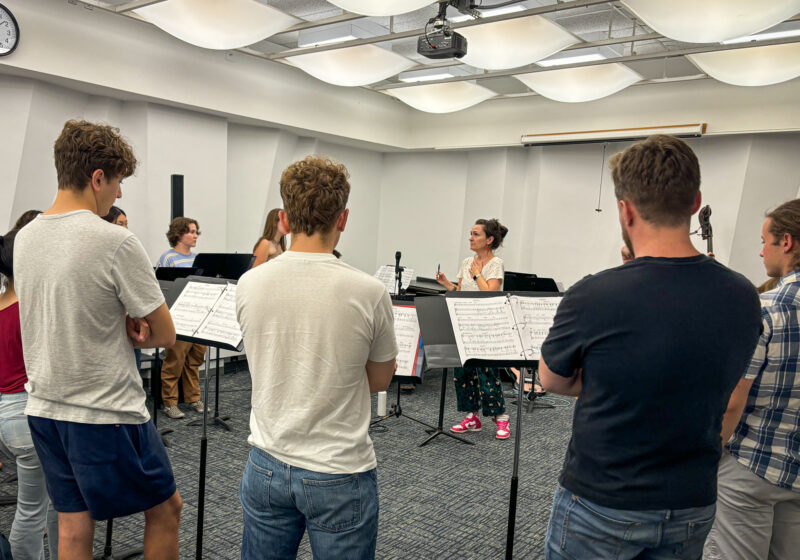The decline of our civic culture has been a central subject of concern for most of the past century. Manifested in falling levels of political and associational activity, in an increasingly atomized conception of individualism and in the commonly held feeling that our sense of community has been lost, the crisis of civic life represents a stark challenge to American democracy.
In the 20th century, the debate over causes and cures for the democratic dilemma fueled the growth of a diverse intellectual tradition, encompassing thinkers from John Dewey and Walter Lippmann to Robert Putnam and Christopher Lasch.
The decline in political participation and the weakening of social bonds has represented one of the central crises of 20th century American life. A revival of civic humanism and republican political thought may enable Americans of the 21st century to at last resolve this democratic crisis.
Civic revival
In recent years, the tradition of civic republicanism has undergone an atavistic renaissance. Writers such as Michael Waltzer and Robert Bellah have mounted strong critiques along communitarian lines, while the late Christopher Lasch ? an influential social critic and UR history professor ? contributed greatly to this discussion with his own unique conceptions of populism, producerism and hope.
While diverse, this body of thought stems from some of the best ? and most deeply felt ? impulses in American life. Its distillation into a practical political program remains distant. However, such a program does promise a solution to our democratic dilemma.
Broadly speaking, any revival of civic life in America must be predicated upon a revival of civic interest and civic participation. These goals, however, are only to be realized by virtue of a prior revival of the tradition of civic republicanism. The hallmark of our early republic, this tradition emphasizes the moral and civic responsibilities of citizenship. Among these, of course, is the responsibility to engage with our fellow citizens and to participate actively in our public life.
A true realization of democracy depends on our doing this. However, in the era of the centralized state, the ordinary citizen is afforded fewer and fewer opportunities for meaningful civic participation.
While the critique of governmental centralization has long been the province of conservatives, the conservative critique has missed an essential point: governmental centralization is the natural corollary to economic centralization. Attempts to correct for failures of the market ? through social service and regulatory enhancements ? have occasioned most of the expansion of governmental power.
Industrial capitalism has hurt civic republicanism in more ways than one, as the civic republican tradition presupposes a certain level of economic equality which our increasingly unequal distribution of wealth undermines.
Necessary linkages
Any critique of governmental centralization must therefore be linked to an equally vigorous critique of economic centralization and class polarization. The necessary linkage between governmental and economic decentralization makes both goals more difficult to achieve, but no less necessary if the betterment of civic life is sought.
One of the most common objections to decentralized government is the issue of competence. The people, it is argued, lack the time, the inclination or the knowledge to effectively participate in civic affairs.
However, people very readily acquire that knowledge which they deem useful.
As governmental decentralization increases the range and importance of issues submitted directly to the citizens, the citizens will rise to the occasion. As long as centralized government and expert rule are the norm, can we honestly blame ordinary citizens for not making an effort to become informed?
As decentralization increases the number and variety of issues on which citizens will wish to become informed, it will also encourage the revival of another key component of the republican tradition ? political discussion. Public discourse on common problems has been one of the casualties of the democratic decline.
By giving people something to talk about, civic republicanism would revive traditions of public debate, as citizens formed and defended positions on problems as only those with a direct interest in their resolution can. The need to better develop and inform ones? positions ? an imperative best inculcated by public debate and criticism ? would again compel us to study questions of public concern carefully.
Our media, for the better part of this century, has striven for a false and ultimately unattainable standard of objectivity. It could again resume its function as a forum for public debate.
While all of this might seem a bit speculative now, this vision is not one without precedent in American history, nor is it one without its advocates in contemporary American life.
For the thinkers mentioned at the outset, for anti-sprawl and community activists, for vibrant neighborhood associations and for the many individuals using the internet to revive small business, the prospect of a decentralized society composed of strong communities is very real indeed.




